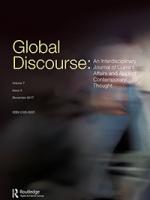Taking securitization theory beyond its power-critique
In a recent contribution to a special issue on securitization in the non-west, Senior researcher Mona Kanwal Sheikh makes the point that the global travel of the theory bears a promise of a broader applicability of the theory, which do not only draw from its power-critical potential. She argues for developing its potential to say something substantial about the context it is taken to: its culture, its sentiments, the larger frames of interpretation of political events, including the role of religious imagery.
Sheikh observes that “Securitization theory has from the beginning pointed at the audience as the filter between the speech act and the emergency action, which is perhaps also one of its most ‘western’ characteristics reflecting the strong accountability demands in the political culture of Western Europe. In a recent article, Rita Floyd (2016) has argued that securitization theory should skip the idea of a sanctioning audience and instead measure success by whether the securitization move is followed by concrete action by the securitizing actor.”
In contrast to this Sheikh argues that “Skipping an in-depth analysis of the audience and their sentiments might allow for an easier travelling to contexts, which are less democratic than the western European one where securitization theory was invented. But it would also then become a conform analytical model producing conform conclusions, inclined to focus on the official power holders, while the power of ‘the people’ and their potential sanctioning potential, as the Arab Spring revolutions for instance displayed, would be given less attention.”
DIIS Eksperter

